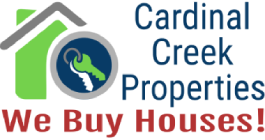
Selling a house is a multifaceted endeavor that encompasses financial considerations, strategic decision-making, and a comprehensive understanding of the real estate landscape. Homeowners in Belleville, like anywhere else, often find themselves at a crossroads when deciding how to sell their properties. Two prevalent avenues that emerge are the traditional route of partnering with a real estate agent and the alternative approach of selling directly to an investor. In this exploration of Selling Your Belleville House, we delve into the intricate web of costs and consequences associated with each choice.
The decision to sell a property involves not only the emotional attachment one may have to their home but also the pragmatism of optimizing financial gains while minimizing expenditure. As homeowners contemplate the intricate dance of maximizing returns, it becomes crucial to dissect the various elements that contribute to the overall cost of selling a house. This analysis takes center stage when considering the divergent paths of entrusting a real estate agent or engaging with an investor for the sale.
The purpose of this article is to provide a comprehensive understanding of the financial implications when navigating the realm of property sales in Belleville. By contrasting the costs inherent in utilizing a real estate agent with the financial considerations of selling to an investor, homeowners can equip themselves with the knowledge necessary to make an informed decision that aligns with their unique circumstances and aspirations. This exploration will not only shed light on the fiscal aspects but also underscore the nuanced factors that influence the trajectory of this significant transaction.
Selling with a Real Estate Agent
- Agent’s Commission: One of the most substantial costs of selling your house through a real estate agent is the commission fee. Agents typically charge a substantial percentage of the final sale price, which can range from 5% to 6% on average. This fee is split between the seller’s and buyer’s agents, and it can significantly impact the total profit you receive from the sale.
- Home Preparation Costs: To make your house more attractive to potential buyers, you might need to invest in extensive repairs, renovations, staging, landscaping, and professional photography. These costs can add up quickly and potentially cut into your overall proceeds.
- Marketing Expenses: Real estate agents often use marketing strategies to showcase your property, such as listing it on multiple online platforms, hosting open houses, and creating marketing materials. While these efforts can lead to a higher selling price, they also come with associated expenses.
- Time on the Market: The longer your property remains on the market, the more you’ll spend on ongoing maintenance, utilities, property taxes, and mortgage payments. An extended listing period can eat into your potential profit.
Selling to an Investor
- No Agent’s Commission: One of the most appealing aspects of selling to an investor is the absence of real estate agent commissions. Since you’re dealing directly with the investor, you can negotiate a price that takes into account the lack of agent fees.
- Quick Sale: Investors often seek properties that they can acquire quickly. Selling to an investor can expedite the process, helping you avoid ongoing holding costs associated with a prolonged listing period.
- As-Is Sale: Investors are usually interested in properties “as-is,” meaning you might not need to invest in costly repairs and renovations before the sale. This can save you both time and money.
- Flexible Payment Options: Investors might offer various payment structures, such as a lump sum or installment payments, depending on your financial needs.
Factors to Consider
- Timeframe: If you need to sell your house quickly, selling to an investor might be the more suitable option due to its expedited process.
- Financial Goals: Consider your financial objectives and how much you’re willing to invest in repairs, commissions, and other costs associated with traditional listings.
- Property Condition: If your property requires extensive repairs, selling to an investor might be a practical choice, as they often buy properties in various conditions.
Conclusion
As you stand at the crossroads of selling your Belleville house, armed with a newfound understanding of the costs associated with each path, you’re better equipped to chart your course forward. Whether you opt for the traditional route with a real estate agent or choose the expediency of an investor deal, remember that each choice comes with its own set of advantages and considerations.
Should you decide to partner with a real estate agent, Cardinal Creek Properties stands ready to guide you through the intricate process, leveraging their expertise to navigate negotiations, marketing, and property presentation. On the other hand, if the prospect of a swift and hassle-free transaction appeals to you, exploring options with investors might be the way to go. Whichever avenue resonates with your goals and aspirations, Cardinal Creek Properties is here to offer guidance and support every step of the way.
For personalized assistance and insights tailored to your unique situation, reach out to our expert advisors at (314) 467-8137. Your journey towards a successful property sale starts with making an informed decision, and we’re here to help you make the right one.

